
Near the end of December, three out of 97 land owners in the Kingdom Trails network in East Burke, Vermont decided to end access for mountain bikers on the trails that run through their land. While it may sound like a small proportion, it turns out that some of the best trails in the network run through these three parcels and the entire network’s connectivity has been severely hindered.
To give this more context, it’s important to understand that a lot of land in Vermont is privately owned, and more than 70% of mountain bike trails run through private land, which in many cases is owned by farmers. Vermont’s limited liability statute makes it easy for landowners to allow mountain bike trails on their property. If a mountain biker breaks her or his bones or bike on a farmer’s property, they’re unable to hold the property owner liable. Still, it’s up to the private landowner if they want to allow anyone else on their property at all.
Until recently, the Kingdom Trails were the example when mountain bike organizations wanted to cite how private landowners and mountain bikers can work together to make a progressive mountain bike trail network come to life. Almost 100 landowners worked closely with the Kingdom Trails Association (KTA) and allowed mountain bikes, as well as hikers, and XC skiers onto more than 100 miles of trail. But year after year, a little too much life was pumped into the network.
In 2011, the New York Times reported the annual number of visits at 51,000. By 2018, the network was seeing 137,000 visitors per year, according to the North Star Monthly, so in seven years’ time the visitation had almost tripled, averaging close to 400 visitors per day. Another figure worth noting is that 84% of the visitors are from another state.
A day pass to ride the Kingdom Trails costs $15, and the local mountain bike organization makes a pretty penny off day passes and yearly memberships, at least compared to other mountain bike clubs. At the end of the 2018 fiscal year, the club reported over $1.2M in revenue, with about half of that made from day passes, and about $400,000 collected from yearly memberships. The club also reportedly spent $900,000 and put large amounts of money towards trail management and community outreach.
While the Kingdom Trails and businesses close by benefited economically from tourists, the traffic and congestion started to present an issue.
“Kingdom Trails has experienced great growth in recent years. This success has put extreme stress on the formerly quiet roads and small villages where the trails exist; East Burke, Lyndonville, Kirby, and East Haven,” said KTA Executive Director Abby Long. I reached out to KTA shortly after the news came out to get a better understanding. “Trail users have brought with them incredible economic opportunity, but also challenges around traffic and pedestrian safety of residents and visitors alike.”
The ballooning trail system resulted in hordes of people, weekend after weekend, causing problems for drivers due to the routes mountain bikers were using along Darling Hill Rd., and due to the fact that there were more cars than parking spots.
Something else presented an issue, however. Reports floated across comment sections in the internet that the landowners who ended access had been disrespected by mountain bikers on their own land. I asked Long if this was true, only to get a vague answer — the same answer that was given to paying members and the public.
“All who cross private land must be respectful and portray ideal trail etiquette and behavior toward any landowner and the land as well as the community that hosts the trails.”
When KTA announced the news on its Facebook page, hundreds of people took to the comments section to voice their opinion about what happened, what they’ve seen at the Kingdom Trails over the past few years, and to voice their frustrations with the perpetrating mountain bikers and the organization. Then, KTA deleted the post.
“On December 20th, while posting the Winter Trails Update, we accidentally deleted our Darling Hill Public Statement, along with its nearly 450 comments,” they said in a post on Dec. 26.
Several commenters replied back, noting that it’s a pretty big leap to accidentally delete a post, since Facebook requires three steps and makes sure users know that they’re about to delete a post and will not be able to recover it.
There’s no telling what was in the original post now, but it does seem a little strange that KTA feels so uncomfortable addressing the other issues at hand. According to the Caledonian Record, the three landowners did write a letter to KTA with their reasons for revoking access, and since KTA won’t share their concerns in detail, all anyone is left to rely on is the rumor mill. Most of the rumors seem pretty consistent; that some mountain bikers were repeatedly disrespectful to the landowners on their own property while the landowners were trying to enjoy their land alongside them. To what degree, is unknown.
This may have just been the straw that broke the camel’s back though, as many of the problems with traffic and congestion hadn’t been addressed by KTA until recently.
“I was unaware these landowners were about to choose to restrict bike access on their properties,” said Long. “However I did know there had been concerns among all of our 97 landowners and our community members about the growth Kingdom Trails had experienced over the past several years.” KTA says this is why they pursued a USDA grant which will help them identify a proper placement for a welcome center, new parking locations, and to assess and recommend traffic flow and dispersion methods.
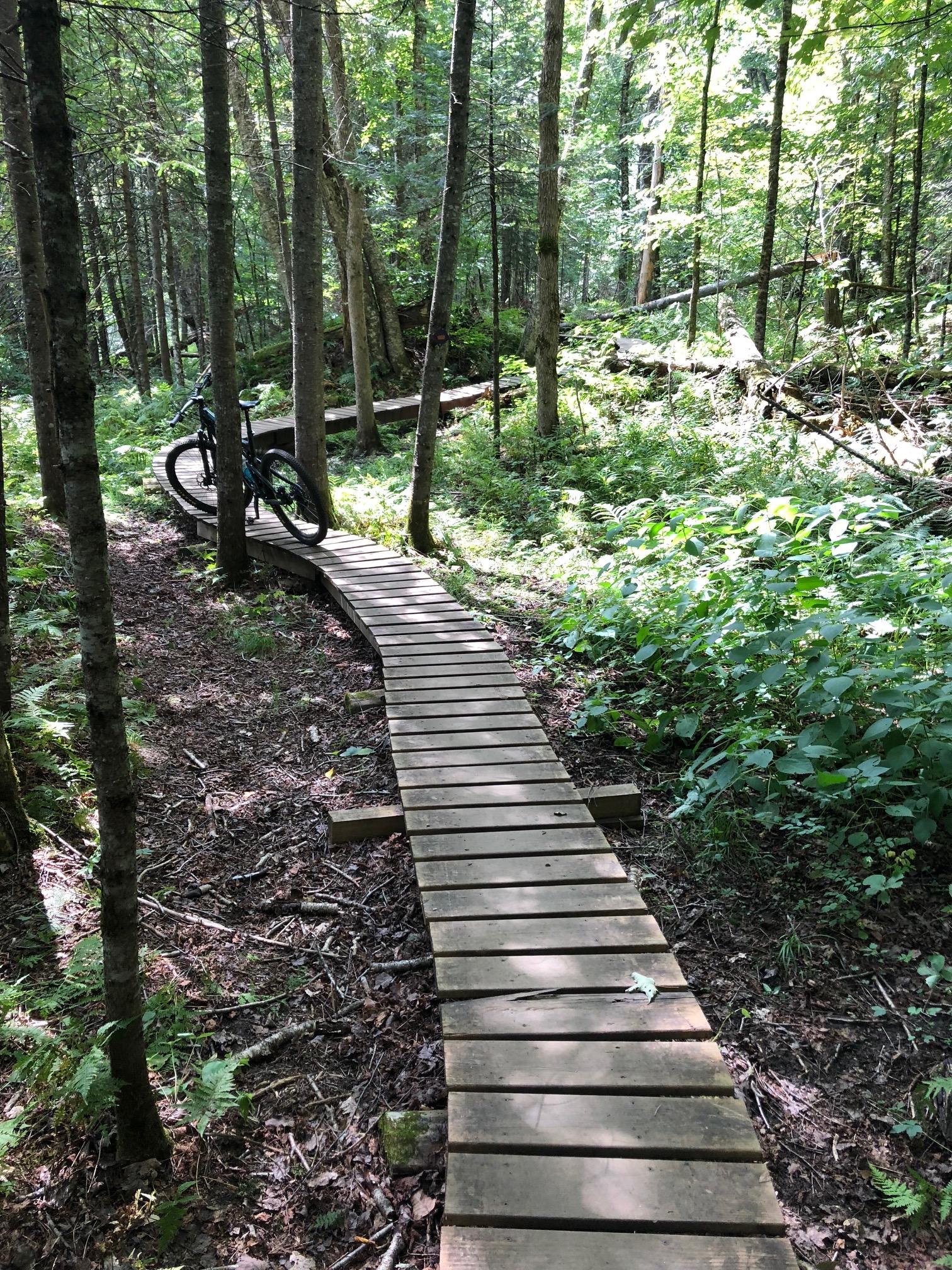
Long says that she has been making strong efforts to address persistent issues since she took over as the head of KTA a year and a half ago. KTA re-did all of its signage throughout the network. There are new ‘ride single file’ reminder signs, and signs to remind cyclists about how to yield to equestrians. The signs are also written in French since 38% of the network’s visitors are from Canada.
KTA also collaborated with Burke Mountain Resort and the Burke Area Chamber of Commerce to create a community shuttle from Burke Mountain, where there is “optimal parking,” to the Darling Hill area so that mountain bikers didn’t have to take up more parking spots in the Kingdom Trails area. The organization is also working with the City of Burke to reconstruct East Darling Hill Rd., with new drainage and asphalt and a 5-foot-wide bike lane for uphill cyclists.
Aside from the trail closures, another decision that is sure to reduce the number of visitors, even if it’s only a fraction of the total amount, is the cancellation of NEMBAFest. The New England Mountain Bike Association Festival is a yearly celebration of mountain biking and the area’s trails. Last year, 4,000 people attended the festival in June.
“The impact of the event over the three days placed much stress and pressure on the rural Vermont infrastructure and roads,” said KTA in a statement. The decision was announced by NEMBA, KTA, and the Wildflower Inn on January 17.
The closure of some of the most popular trails in the network will likely be what reduces the overall amount of people that visit, and not everyone sees that as a bad thing.
Doug Clarner runs the Burke Bike Barn, which consists of two fully renovated farmhouses from the 1800s that have been turned into mountain bike friendly lodges. They are popular choices to stay for visiting riders. Clarner has seen the Kingdom Trails increase over time since he started the lodge in 2011. Between weekends and US and Canadian holidays, the Kingdom Trails rarely get a breather, he says.
“Now it’s just busy all week long. You think you’d be able to come up on a Tuesday and have the trails to yourself, but that’s not the case.” Clarner also sits on the board of the KTA.
He sees the recent actions as a way for the network and community to return to a more sustainable size that is more enjoyable for everyone, even if it might impact his business.
“It is 100% reliant on bike tourism,” says Clarner about the Burke Bike Barn. It’s still too early to tell how the trail closures might affect visitation, which would also affect local business, and the Kingdom Trails have an enormous impact on the local economy. KTA estimates that tourists spend about $115 each day. “If it’s five percent of the business, it’s probably not a big deal. If it’s 50%, then it’s a different story.”
Even as a board member, Clarner said he doesn’t have a clear view of the possible incidents or altercations that took place between mountain bikers and the landowners. “Most of the rumors you’ve heard, are the same ones I have. Who knows if any of them are true.”
To make matters worse, the organization has already spotted fat bike tracks poaching into the closed trails that are marked with signage, so it doesn’t look like mountain bikers will stop shooting themselves in the foot anytime soon.
More than anything, it sounds as if the problems that Kingdom Trails faced compounded over time, until the landowners grew tired of it. Would this have happened with half of the amount of visitors, and a couple of rude riders? Would it have happened with 25% more riders who were entirely respectful of others? Well, we can all take our best guesses. Maybe some of them will be true.












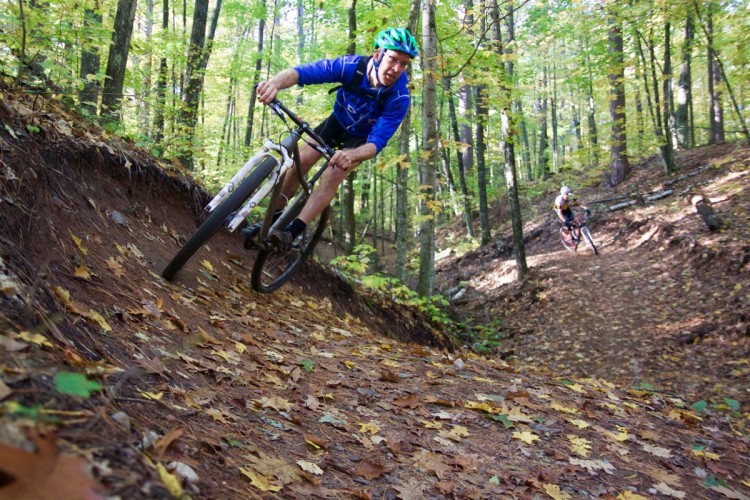

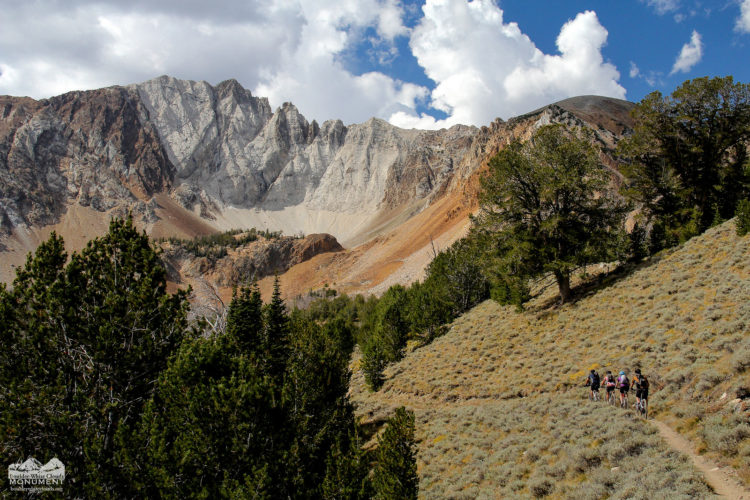



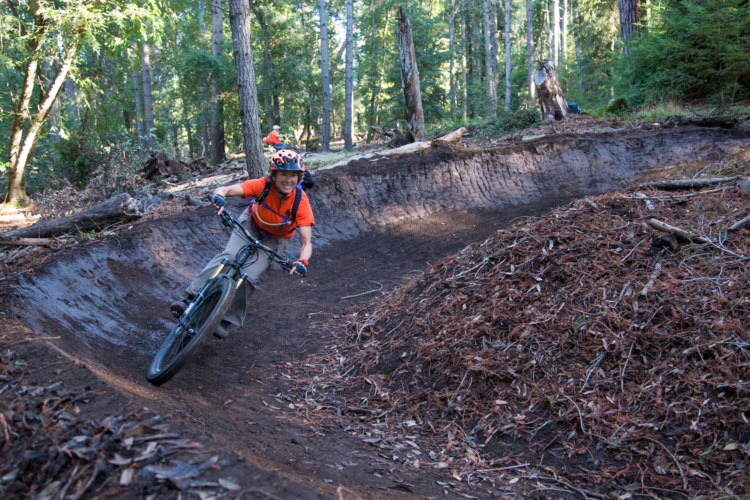
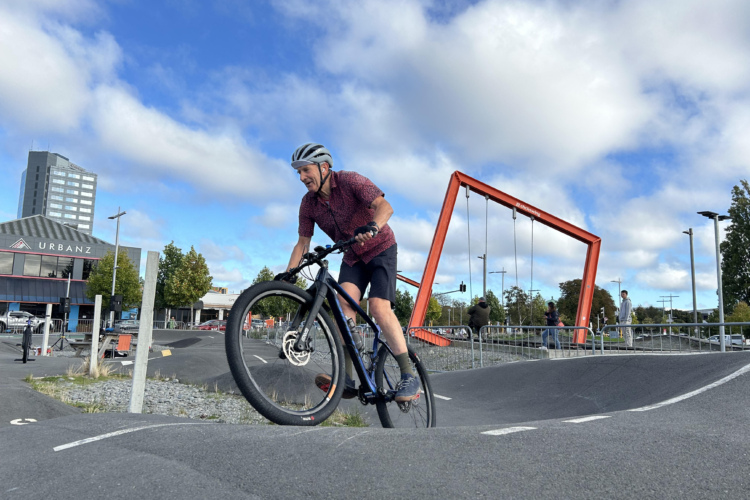

13 Comments
Apr 8, 2020
Get off the beaten path and spread out. There are tons of good mountain bike trails all over new England, and there are tons of businesses that are off the beaten path that want you to go there. Just not all at once. When a place becomes JUST a college town, or JUST a tourist attraction, it stops being a real place.
Also, if all of your actual residents are curmudgeons over 60, they're going to be the ones to vote down your new MTB trail.
Jan 23, 2020
Jan 27, 2020
The number of MTB and land owner conflicts will continue to increase if a number of trail networks commensurate with the overall population exist to support them--supply and demand. It's a pay-to-play system though. I expect to pay to ride any trails whether that be a pay system, taxes, or by volunteering my time to build and maintain them. Once the trails (or the supporting community) are not respected, the welcome will subside.
But the culture and nature of MTB'ing will change. MTB'ers have typically been a subset of the local population riding their local trail networks. As more of the populace starts riding and demands a service (trail networks) without rationally acknowledging how fragile the balance between those who choose and support all aspects of riding as part of their lifestyle versus those who do not, these situations will increase in frequency especially in privately-owned trail networks.
'Destination' riding is an increasingly affordable recreation option with a reasonable barrier to entry. If we aren't careful, we might wind up causing MTB'ing to become more elitist, much like skiiing, where the barrier to entry is quite high, the locations with decent conditions are expensive to lodge, and the demand for service is unsustainable.
Jan 23, 2020
-Stay in Stowe and ride Trapp, Adams Camp, Cady and Little River
-Stay in Waitsfield and ride Mad River stuff
-Stay in Middlebury and ride Chipman, Battell, Rikert and Mooselamoo
-Stay in Rutland and ride Pine Hill and Slate Valley (Fairgrounds, Endless Brook, Delaney)
-Ascutney and Millstone have big networks and are worth more than a full day of riding
and the 8 Fellowship of the Wheel trail networks ringing Burlington are awesome as well.
While I expect to go back to KT, I will also be spending more time and money elsewhere.
Jan 24, 2020
Jan 23, 2020
This reminds me of my time in the military. Without going into specifics, the locals where we were stationed hated the military being there. We were always told to go home and that we weren't welcome (this was in the United States btw). The entire base went on a 17 month deployment (1 year plus extended 7 months). When we returned a bunch of businesses had closed. The community felt the squeeze when the dollars disappeared. We were treated much differently when our money returned.
Hopefully the East Burke community is aware of the drastic effect this can have. There are hundreds of miles of new trails built every year and there will inevitably be another MTB destination that will rise up. As Joni Mitchell once said "You don't know what you've got til it's gone"
Jan 24, 2020
It also is disappointing for those around there profiting off the tourism. Community may not even realize how much money comes in due to the tourism. Lodging and food are obvious sources of money coming in but most probably don't consider Walmart runs or getting gas or local shop visits. Sounds like the community benefits but it takes the whole community to keep it together. Maybe a bump up on the fee to $20 and let the landowners see some of that money directly. I didn't read where they were seeing any revenue from the passes.
Great idea for Vermont to remove liability from the landowners. Wish there was more of this across the states to take stress off landowners willing to share their land.
Jan 27, 2020
Jan 24, 2020
Jan 23, 2020
Jan 27, 2020
Jan 27, 2020
A sudden growth in interest by a new trail user population of an existing network is typical of this situation. Existing users feel encroached on by new users who disrupt their sense of normalcy. Then the situation becomes partisan.
We all want something to ourselves but at most are at least willing to share with our own. Trail users and land managers ultimately all want to enjoy the space, albeit in their own way. Understandably the balance between users is dynamic--ever changing and in need of consistent 'maintenance'. I do believe routine and decisive communication between isn't a nicety, it's a requirement.
Jan 23, 2020